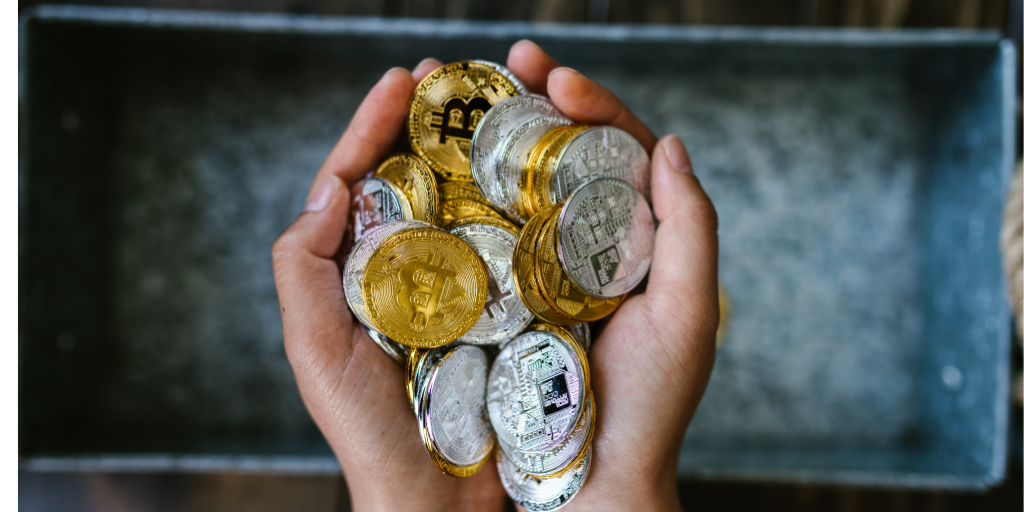How Cryptocurrency Works

Cryptocurrency 101
A cryptocurrency is an online form of payment that can exchange goods and services in the same way that fiat money (government issued currency).
There are many companies who have created their own tokens which can be traded for their own goods and services, so there are certainly a lot of cryptocurrencies out there—nearly 7,000 according to CoinMarketCap.com, a market research website!
According to Investopedia.com, the “crypto” in cryptocurrency refers to “complicated cryptography which allows for the creation and processing of digital currencies and their transactions across decentralized systems.”
Cryptocurrencies are typically built by teams of developers who incorporate a variety of issuance techniques that depend on the decentralised nature of the system.
Cryptocurrencies function through the use of a technology known as blockchain, which is a decentralised system that is distributed over many different computers and records and controls transactions.
Because of the fact that information is not all in one central area, it is extremely safe, and once a transaction is chained, it is logged for future reference.
Using cryptocurrencies by entrepreneurs to advance their businesses and earn revenues is becoming more common. In fact, because cryptocurrencies offer both investment opportunities and new financial tools, there has never been a better moment to get started in the cryptocurrency industry!
Are you prepared to take the jump into the fascinating and lucrative world of cryptocurrencies and blockchain technology?
Let’s get this party started!

How Cryptocurrency Works
Bitcoin is the most widely used cryptocurrency. Cryptocurrencies designed after this one are typically referred to as “altcoins,” and they are frequently less secure than Bitcoin.
Bitcoin was founded in 2009. (at present, nobody knows exactly who created it). According to Investopedia, it has “lower transaction fees than traditional online payment mechanisms and, unlike government-issued currencies, it is operated by a decentralized agency.”
There are no tangible Bitcoins can be seen or touched. Instead, there is a completely open ledger to which everyone on the planet has access. Bitcoins are neither issued or backed by any government or bank, and they are not valuable as commodities.
However, all Bitcoin transactions are authenticated by a massive amount of processing power. The system comprises a network of computers known as “nodes” or “miners,” which all execute the Bitcoin code and store the blockchain record of all transactions.
Because every machine running this blockchain has the same list of blocks and transactions, and everyone can see the new blocks being filled, cheating the system is nearly difficult.
As of January 2021, Bitcoin has over 12,000 distinct nodes (and this number is growing), making such an assault extremely implausible.
Even if it occurred, Bitcoin miners (the actual individuals who take part in the Bitcoin network via their computers) would detect the change and simply “fork” to a new blockchain, rendering the entire attempt pointless.
Bitcoin mining is releasing bitcoins into circulation. According to Investopedia, mining “requires the solving of computationally difficult puzzles to discover a new block, which is added to the blockchain.”
Miners are rewarded with Bitcoins when a new block is added. After every 210,000 blocks, the prize is halved, thus the 50 Bitcoin payout in 2009 is currently worth 6.25 Bitcoins.
To mine Bitcoins, you can utilise a variety of different devices. Of course, some will produce better results than others, and they are referred to as “mining rigs.”
Certain computer chips (Application-Specific Integrated Circuits, or ASIC) and more complex processing units (such as Graphic Processing Units, or GPU) will, for example, produce greater rewards than other systems.
One Bitcoin is divisible to eight decimal places. The smallest unit is called a Satoshi (0.00000001 Bitcoin) after the enigmatic figure who invented Bitcoin, Satoshi Nakamoto. If all participating miners agree, Bitcoin might be divided even more in the future.
Bitcoin can be used as payment for goods and services. Physical stores can accept Bitcoin in place of fiat money; transactions would be handled via a customised terminal or QR codes and touch screen apps.
Bitcoins can be readily accepted alongside other online payment methods such as credit cards or PayPal by an online business. There are additional job-site websites, such as Cryptogrind, Coinality, or Bitwage, that will connect prospective employees with businesses who pay in Bitcoin.
Many Bitcoin advocates believe that digital currency will eventually become the norm. The IRS said in 2014 that all virtual currencies, including Bitcoins, would be taxed as property rather than currency. This means that gains or losses on Bitcoins held as capital will be recognised as capital gains or losses, whereas gains or losses on Bitcoins held as inventory will be realised as ordinary gains or losses.
To buy cryptocurrency such as Bitcoins, you will need an online “wallet,” which is a programme that stores your assets. Typically, you open an account with a cryptocurrency exchange and then transfer fiat money into cryptocurrencies.
Coinbase is a prominent trading platform that allows users to build a wallet and buy and sell cryptocurrencies.
What Risks You Should Be Aware Of ?
While cryptocurrency opens the door to a plethora of investment and financial instruments, the lack of guaranteed value, as well as its digital nature, introduces a risk that you should know before you begin.
“It is very much the high-risk, high-return investment that you can make,” says Barry Sibert, CEO of Digital Currency Group (which builds and invests in Bitcoins and blockchain firms).
Here are some risks you may face:
Regulatory Concerns: Because bitcoins are a digital competitor to government official currency, they may be used for illegal activities, black market transactions, money laundering, or tax evasion.
As a result, governments may strive to regulate, restrict, or prohibit the usage of such currencies (some already have). Other governments are enacting a variety of cryptocurrency regulations.
Security Concerns: Most people who hold and use Bitcoins received their currency from one of the many popular online markets known as Bitcoin exchanges. Because these are fully digital, they are vulnerable to hackers, malware, and even operational flaws, just like any other virtual system.
Hackers could target these exchanges and obtain access to thousands of accounts and digital “wallets” containing Bitcoins.
Users may only avoid these risks by storing their currency on a computer that is not connected to the internet or by using a “paper wallet,” which involves printing out the Bitcoin private keys and addresses and not storing them on any computer at all.
Insurance Risk: At the moment, no federal or government programme insures bitcoin exchanges or accounts.
In 2019, one dealer and trading platform (SFOX) announced that they would give FDIC insurance to Bitcoin investors, but only for cash transactions.
Fraud Risk: Although Bitcoin uses private-key encryption to verify owners and register transactions, scammers may attempt to sell counterfeit Bitcoins. Price manipulation, which is another typical type of fraud, has also been reported.
Market Risk: Bitcoin prices, like any other investment, might vary. The value of Bitcoin has fluctuated dramatically since 2009.
There are also a lot of competitors for Bitcoin, and a technological breakthrough as a superior virtual coin is always a threat.
If you want to invest in cryptocurrencies through an ICO (Initial Coin Offering), you should consider the following:
- Who is the company’s owner? Is it a well-known name or an identifiable owner?
- Are other key investors already on board?
- Will you have a share in the firm or will you only have currency or tokens? The former indicates that you are a true owner of the organisation, whilst the latter simply provides you with bitcoin to buy or sell.
- Is the currency already created, or is the company raising funds to create it? The greater extent of the product history is, the lower the risk.




